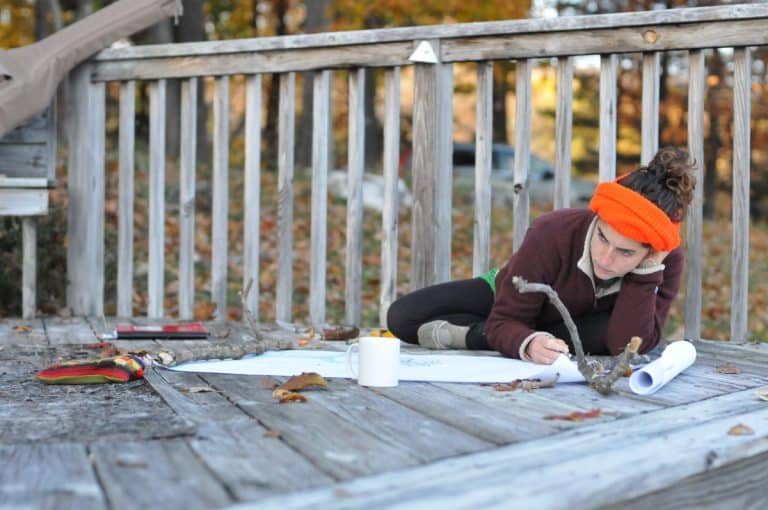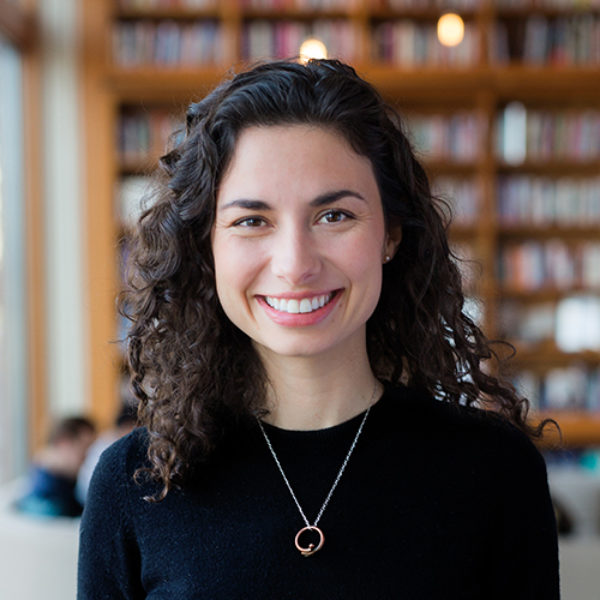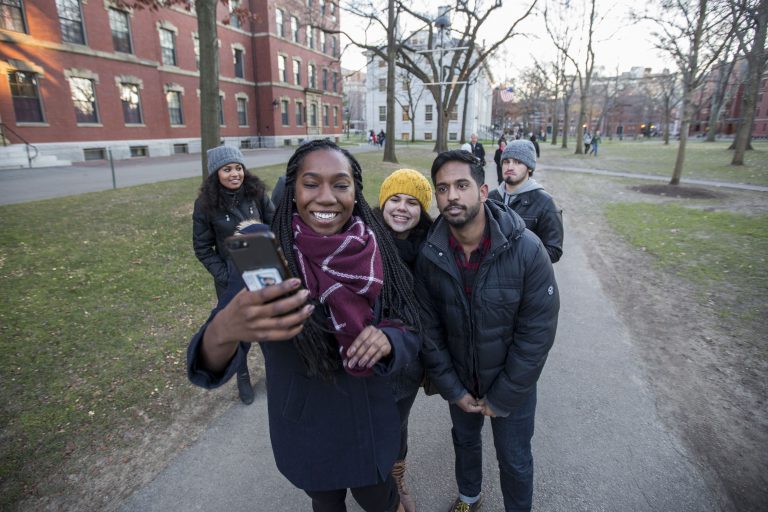
Image by Open Master's, © All Rights Reserved.
The Radical Art of Learning From Within
“We have an inner teacher who wants to lay a claim on our lives.”
— Parker J. Palmer
How would our lives and society change if education began with going inward? That is the project of the Open Master’s, a program for self-directed and community-supported wayfinding. Co-founders Sarah Bradley and Alan Webb set out to connect learners to their own inner teachers, nurturing personal transformation by inviting each participant to design their education around a vision of the person they want to become.
“We’ve talked a lot about the zombie walk through college or grad school,” Webb says:
“That feeling of, ‘I don’t really know why I’m here but it’s what I’m supposed to do.’ It’s shocking that we would spend so many resources as a society putting people through a multi-year experience that they themselves don’t understand the reason for. Not only that, but thousands of students, faculty, teachers, and administrators report that the culture of schools and universities has become ‘toxic’ or even ‘soul crushing’. I have heard from far too many parents that, rather than forming whole humans, institutions of learning are sapping the love for exploration and creativity from their children.”
It is this situation that pushed Bradley, Webb, and their team to launch the Open Master’s program. The Open Master’s supports individuals in crafting independent master’s degrees, then organizes circles of learners around the country who accompany each other on the journey. The mission is to help people identify and act on the “why” behind their learning.
They begin every person’s education with radical pause: taking inventory of the inner life and seeking inner wisdom about what to do going forward. Learners quickly discover that “What do you want to learn?” can become a string of existential questions: “Who are you and who do you want to become and why?” Which leads, in turn, to a whole worldview to unpack:
“How do you make meaning of the world? What does success mean to you? What do you want to be remembered for?”
To facilitate these questions, Bradley and Webb created the Wayfinder Kit, a handmade package of journals and cards meant to stimulate reflection. Its artistry, says Bradley, is meant to inspire the experience of true learning as a spiritual quest. And its process honors and presses deep inquiry in a culture where that is largely ignored.
“It’s not surprising so many people end up in college going through the motions, if we haven’t made space for them to ask and answer those questions,” Webb says. The pause is so countercultural that he and Bradley often encounter resistance at first. But it is usually those same people who come back grateful, having dramatically shifted their plans.
As a packaged version of the inner inventory process, the Wayfinder Kit was initially designed just for the Open Master’s community. But to the team’s surprise, it is being picked up with gusto by first-year college students and their advisors, parents of homeschoolers and unschoolers, church groups and elder groups, teachers and counselors, people in the midst of career transitions, and groups of friends and partners trying to carve out space for their own growth. They are now working on adapting it to new contexts where it might serve more people, especially marginalized communities who are already learning outside of the system, relying on relationships and their own ingenuity.
The Open Master’s is inspired by grassroots popular education movements of the last century: the self-organized Chautauqua Literary and Scientific Study Circle in the American Midwest that made it possible for women to attend “school,” or the citizenship schools through which African Americans created their own education under Jim Crow in the American South. These and other movements like Danish folk schools and Highlander are people-powered responses to institutional failure, giving courage to marginalized citizens to find and lift their voices in the face of scarcity, oppression, and exclusion.
Like its ancestor organizations, the Open Master’s only exists because formal institutions are serving people incompletely. And the missing element must be restored if we are to heal what Parker J. Palmer calls the heart of our democracy.
That element is soul.
Webb describes the very first time the Open Master’s gathered over dinner in Washington, D.C. “The most common and powerful word spoken that evening was ‘soul,’” he says.
“As if this thing had one, and as if it had entrusted in us a great responsibility to do certain things for each other: To see and treasure each other as complex, multifaceted humans who are passionate about many things and possess more knowledge, wisdom, and life experience than could be captured on a piece of paper. To stop at nothing to help each other live into the dreams we shared that night.”
Palmer describes this journey as learning to listen to the voice within. A more trustworthy guide than doctrines or institutions, our internal voice nonetheless seeks other people to invite, amplify, and help us discern its wisdom. Through community we find courage to follow the soul’s leadings.
“We need new ways to spark or deepen that inner quest for truth,” says Bradley. “To understand our own values wrapped up in that truth, to challenge ourselves to live up to them, and to share in that experience with what makes life most meaningful — beloved community.”
Educating a new generation to live and lead with integrity — which is to say, in alignment with that life-giving core of the human self — will require containers that hold both inner inquiry and soulful community. If we are to raise a different kind of leader, we need to recognize and nurture the inner lives of each new generation, inviting them to become grounded in their own bodies and hearts, trusting of the deep sources of wisdom within them, guided by their own sense of creative agency, bound by mutual commitment to learn with and be changed by others who are different from them, and daring because of all of this to explore questions that are difficult, unvalued, or even heretical now.
To cultivate soulful leaders, we need learning communities that listen to the soul.

How We Gather
»Part 1: The Theology of CrossFit
» Part 2: SoulCycle as Soul Sanctuary
» Part 3: The Dinner Party
» Part 4: Becoming Our Aspirational Selves
»Part 5: The Power of Imagination to Reshape Our Politics

